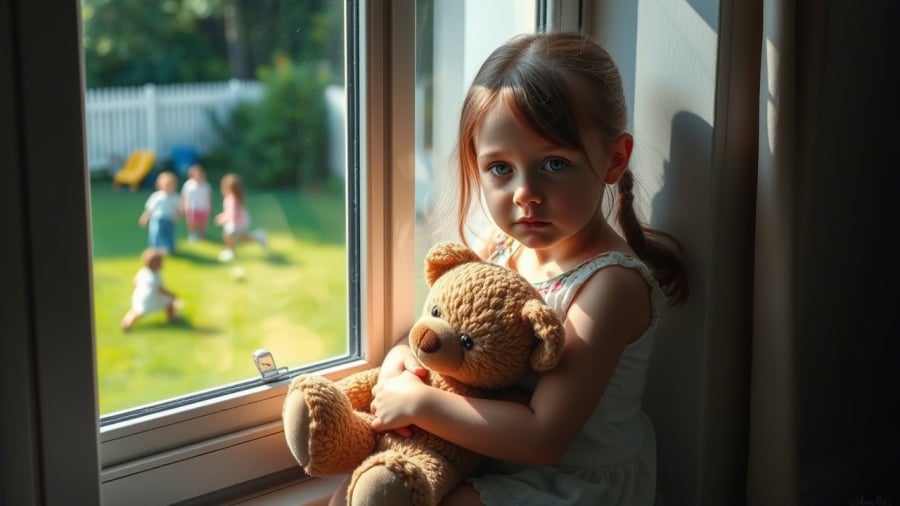Why You Should Pay Attention to Your Child’s Personality Traits
Why is it important to pay attention to your child’s personality traits?
As a mother, I understand that parenting entails more than just ensuring your child’s physical needs are met; it also involves tending to their inner world. A child’s personality traits, formed in their early years, significantly shape their psychological development and future. According to Dr. Nguyen Thi My Loc, a renowned educational psychologist at Hanoi National University of Education, “Personality is shaped in the early years and is deeply influenced by the child’s environment and parental upbringing.”
Ignoring warning signs related to your child’s mental health can have severe consequences. A sensitive child who feels unheard may become insecure or even depressed as they grow up. On the other hand, when children are understood and supported appropriately, they thrive and develop greater confidence.

Ignoring mental health warning signs in children can lead to serious consequences
Four common personality traits in children that indicate vulnerability
High Sensitivity
Highly sensitive children tend to cry frequently, become easily saddened, and react strongly to criticism. This may be due to genetic factors or an insecure environment. Ms. Thu Ha from Hanoi, a parent of a 7-year-old girl, shared her experience: “I used to think my daughter was difficult until I realized she was simply trying to cope with emotions she didn’t know how to manage.”
To support these children, parents should create a loving environment, listen, and empathize. Spend time hugging and gently conversing with your child to make them feel secure.
Anxiety and Fearfulness
Anxious children often fear going to school, meeting new people, or worry excessively about minor things. This could stem from family or societal pressures. Assoc. Prof. Dr. Tran Thanh Nam, Head of the Department of Educational Sciences at Vietnam National University, Hanoi, advises: “Parents should reduce their expectations and encourage children to share their feelings.”
Teaching children stress management skills through relaxing activities like painting, playing a musical instrument, or deep breathing can help alleviate this trait.
Struggling to Socialize
Some children prefer solitude, find socializing challenging, or are ostracized by peers. This could be due to a lack of social skills or extreme introversion. Parents should create opportunities for their children to engage in group activities, such as a book club or a sports team. Additionally, set a positive example by actively fostering your own healthy relationships.
Inability to Cope with Failure
Children often become discouraged and angry when faced with difficulties if they are overprotected or have high parental expectations. To counter this, cultivate a positive mindset. For instance, if your child makes a mistake in their homework, instead of scolding them, say: “It’s okay; we’ll try again.”
The Role of Parents in Helping Children Overcome Emotional Vulnerabilities
Parents play a crucial role in helping children overcome emotional vulnerabilities. Rather than judging, accompany and listen to your child. Building a trusting relationship lays the foundation for open communication. If you feel overwhelmed, don’t hesitate to seek support from a mental health professional.
Ms. Minh Anh from Ho Chi Minh City, a mother who experienced a challenging period when her son was bullied at school, shared: “When I took my son to see a psychologist, I realized I had missed so many red flags.”

Parents play a crucial role in supporting their children’s mental health
Practical Tips for Parents to Avoid Missing “Red Flags”
– Observe daily: Pay attention to your child’s behavior and emotional expressions, not just their academic performance.
– Engage in meaningful conversations: Ask your child about their day and listen without judgment.
– Don’t overlook any signs: Even small actions, such as avoiding eye contact, can be significant “red flags.”
Conclusion: Investing in Your Child’s Emotional Well-being Today Builds a Brighter Future Tomorrow
Understanding and nurturing your child’s psychological needs is the best investment in their future. As Dr. Le Nguyen Phuong, a renowned Vietnamese school psychologist, emphasized: “Education is not just about imparting knowledge but also about nurturing the soul.”
Take the initiative to learn and act promptly to ensure your child’s happiness and success. After all, only with a healthy mind can they truly soar to great heights.
The Ageless Beauty of ‘Li Mochou’: Unveiling the Secrets of Her Flawless Skin at 37
With her flawless complexion, Chinese actress Zhang Hinh Yu has defied the odds and maintained a youthful glow at the age of 37. The secret to her radiant skin lies in a simple yet effective skincare routine that anyone can replicate. Stay tuned as we unravel the mysteries behind her ageless beauty and discover tips and tricks to achieve that enviable glow.





































